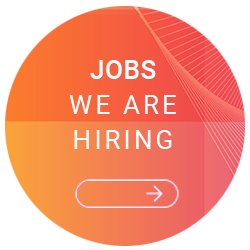 While many industries are suffering, at least online trade has benefited from the Corona crisis. Products for everyday use are ordered far more frequently on the Internet than before, as a study by the Bundesverband E-Commerce und Versandhandel Deutschland (bevh) also shows. Good for those companies that had already expanded their e-commerce business before the crisis and were already established in online trading. But also those retailers who had to adapt to the new framework conditions at short notice and have already switched from stationary trading to online trading or those who are currently in the process of changing their sales channels, can benefit from this development. The next Corona wave seems to be rolling towards us. Those who do not invest now in the establishment and/or expansion of online trade of their own products are missing a great opportunity and risking their future viability in the digital age for their business. At the moment, a disproportionately high increase in demand is opening up new customers and thus important sales in the Corona crisis. Systems and processes should be examined more closely, because this is exactly where increase of efficiency, potential savings and strategically necessary adjustments can be achieved. Through assessments of all current and planned online measures, a risk assessment and analysis of dependencies should be urgently carried out, on the one hand to prepare for a possible new wave of economic restrictions and on the other hand to become more independent in the future. In the long term, online trade will increasingly gain market share, so an early entry or optimization will have a positive effect on the corporate strategy.
While many industries are suffering, at least online trade has benefited from the Corona crisis. Products for everyday use are ordered far more frequently on the Internet than before, as a study by the Bundesverband E-Commerce und Versandhandel Deutschland (bevh) also shows. Good for those companies that had already expanded their e-commerce business before the crisis and were already established in online trading. But also those retailers who had to adapt to the new framework conditions at short notice and have already switched from stationary trading to online trading or those who are currently in the process of changing their sales channels, can benefit from this development. The next Corona wave seems to be rolling towards us. Those who do not invest now in the establishment and/or expansion of online trade of their own products are missing a great opportunity and risking their future viability in the digital age for their business. At the moment, a disproportionately high increase in demand is opening up new customers and thus important sales in the Corona crisis. Systems and processes should be examined more closely, because this is exactly where increase of efficiency, potential savings and strategically necessary adjustments can be achieved. Through assessments of all current and planned online measures, a risk assessment and analysis of dependencies should be urgently carried out, on the one hand to prepare for a possible new wave of economic restrictions and on the other hand to become more independent in the future. In the long term, online trade will increasingly gain market share, so an early entry or optimization will have a positive effect on the corporate strategy.
Jan Konopka, consultant for e-commerce at mgm consulting partners GmbH, has supported companies from various industries in developing a new online sales channel or in optimizing and making existing channels competitive.
Further questions to Jan Konopka? Please contact us here: info@mgm-cp.com
1 How does a company find out whether online sales is a good choice for its own products and business model?
Before the company plans an e-commerce strategy for the entire range of goods, it should be checked whether there is a demand for the products on the Internet and whether they can be offered at a competitive price. This does not require a large budget and only a little infrastructure; this can be done with a research. Once a demand has been determined, and a proof of concept has been chosen, only the products in the main categories should be considered, rather than the entire product range, in order to keep the effort low. For the proof of concept, it is also not necessary to use an online shop with Omni Multi-Channel ERP middleware connection. A standard SaaS (Software-as-a-Service) shop or an eBay account is sufficient for an initial pilot test. After the initial setup of the online store, a small advertising budget for search engine or social media advertising should be used to test whether potential customers will buy the products. This approach delivers fast results and leaves plenty of room for subsequent changes and scaling.
2. Which shop solution is the right choice in or after the Corona crisis?
A basic distinction is made between software-as-a-service solutions and open source shop systems. Each option is available in different scaling variants, from the entry-level to the enterprise version. When selecting a suitable shop system, many individual requirements must be evaluated and taken into account depending on the business model. For this reason, no general recommendation can be made for a specific shop system. If a company implements a new shop system during the Corona crisis, special attention should be paid to a short implementation time so that the first products can be sold online as soon as possible. If a shop solution already exists in the company, the goal should be to make it even more present and attractive in order to secure a greater market shares.
3. How can companies use the current situation to develop their existing online architecture in an agile way?
It has been proven for quite some time that the agile development of online architectures has many advantages over classical project procedures. This is confirmed once again by the unpredictable changes within the last months during the Corona crisis. In general, Corona puts us in a very complex situation, which makes it impossible to plan all measures concretely and to consider all eventualities. Due to the many organizational and procedural restrictions, online retailers have to react immediately to changes and new regulations. This is only possible if agile procedures such as Scrum, Kanban, LeSS or SAFe are adapted to the customer’s culture and projects in a needs-based and individual way. By applying an agile assessment of the online architecture as well as an agile maturity analysis of the organization, potentials can be uncovered at short notice and optimizations can be initiated.
4 Which core processes in online trade must a company have under control during the Corona times?
The increased demand leads to record sales in many German online stores. On the other hand, this means that a stable and high-performance infrastructure must be provided in order to provide customers with the accustomed shopping experience. In addition, functioning logistics processes that have been adapted to the changing requirements, such as contactless delivery, must be ensured. Furthermore, honest and transparent communication with the customer should be promoted in order to inform first-time customers as quickly as possible about delays caused by Corona. Purchasing as another important core process that suffers from the effects of Corona should also be closely monitored. It must be ensured that products purchased from abroad are available at the planned time. If this cannot be guaranteed, adjustments to the product range will be necessary.
5. What changes have occurred in the general conditions for online commerce since the Corona crisis?
The Corona has brought many challenges for online commerce, which at the same time offer opportunities to win new customers. The safety of your own employees should be the focus of all measures in online retailing. This is guaranteed by extensive home office regulations for all employees who do not have to work at the office for operational reasons, as well as comprehensive hygiene concepts for all locations to ensure all work processes. Emergency plans must be drawn up individually for each location, for example to be able to react immediately to a corona case in a logistics centre. Because of the Corona crisis, many companies have opened up online trading as an additional sales channel, which has led to an increase in online offerings. This increasingly leads to price wars for the lowest, most attractive price. As already mentioned, demand has also increased significantly, which makes it possible to win new customers and expand the company’s own online product portfolio. In addition, there are of course many other industry- and company-specific conditions that have changed as a result of Corona and which need to be analysed more closely in individual cases. All these changes have a major impact on the company’s success and the set goals for the year. For this reason, the annual goals and the internal KPI reporting should be put under review in the short term. Here it is important that short-term changes can be mapped so that measures can be derived immediately.
mgm – consultung services in E-Commerce
- Development of digital sales channels: We advise in the introduction, set-up and optimization of B2C and B2B omnichannel solutions and realize new sales potentials in the context of internationalization and marketplace connection.
- Modelling of commerce processes: We know the processes and challenges in the e-commerce environment – both on the sales side and in regard to ERP, CRM as well as product data and media asset management and share our expertise with you.
- Customer-centric requirements management: From strategic and operative business goals we derive methodical requirements. We develop implementable, functional and technical specifications and ensure optimal requirements management.
- Efficient technology selection: We analyze the architectural framework conditions and derive best of breed technology solutions that fit perfectly into the existing IT landscape.
- Creation of modern system architectures: With consulting and design of modern system architectures we create a solid basis. By accompanying the implementation we develop your customized solutions.
- Effective management of projects: We choose from agile, classic and hybrid methods and ensure project-specific and customer-specific adaption. Certified employees accompany and control your project.
- Making success measurable: The definition of suitable KPIs for the commerce control is serves as the basis for the development of recommendations for action to improve the conversion rate and performance.
Photo by Jonny Caspari on Unsplash






